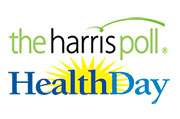- Could Artificial Sweeteners Be Aging the Brain Faster?
- Techniques for Soothing Your Nervous System
- Does the Water in Your House Smell Funny? Here’s Why
- Can a Daily Dose of Apple Cider Vinegar Actually Aid Weight Loss?
- 6 Health Beverages That Can Actually Spike Your Blood Sugar
- Treatment Options for Social Anxiety Disorder
- Understanding the Connection Between Anxiety and Depression
- How Daily Prunes Can Influence Cholesterol and Inflammation
- When to Take B12 for Better Absorption and Energy
- Epsom Salts: Health Benefits and Uses
Only 1 in 5 Wants to See Subsidies for Health Insurance Eliminated: Poll


Only one in five Americans wants to see the elimination of federal subsidies for people who buy health insurance under Obamacare, a new HealthDay/Harris Poll reveals.
The U.S. Supreme Court will rule this month on the legality of such subsidies, possibly as soon as Monday.
Overall, just 19 percent of Americans said they want to see the subsidies eliminated, which would force more than 6 million people to pay the full cost of their health coverage. About 45 percent support continuing the subsidies and 36 percent said they aren’t sure.
Even Republicans are loath to halt the subsidies, which are provided through the Affordable Care Act (ACA) to help make health insurance affordable for millions of low- and middle-income Americans, the poll found.
Only 36 percent of Republicans said they want the subsidies ended outright, while 24 percent said people should continue to get the subsidies and 39 percent said they aren’t sure.
“Perhaps the most striking finding is how few people, and especially how few Republicans, want those who are now receiving subsidies through the federal exchange to lose them,” said Humphrey Taylor, chairman emeritus of The Harris Poll.
At least 6.4 million Americans in 34 states could lose the subsidies — which come in the form of tax credits — that are worth $2 billion a month to help pay health insurance premiums. Many recipients have said that without the subsidies, health insurance would be unaffordable.
Plaintiffs in the case, King v. Burwell, argue that due to the exact wording of the Affordable Care Act, only people in states that established their own health insurance exchanges — marketplaces to buy insurance — should be eligible for the subsidies.
But only 13 states and the District of Columbia created their own exchanges. Most of the states that chose not to create exchanges are run by Republicans opposed to Obamacare.
The estimated 6.4 million people whose subsidies hang in the balance purchased their insurance through the federally run HealthCare.gov online exchange.
The new poll numbers shed light on the political challenge confronting the Republican Party. The party has fought the Affordable Care Act since it was signed into law by President Barack Obama in 2010. And nearly all current GOP presidential candidates have come out in favor of repealing the health-care reform law.
Many Republicans in Congress have said they would support a temporary continuation of subsidies for people struggling to get by. But they would face an uphill battle coming up with a permanent alternative, given the GOP’s antipathy toward Obamacare and internal divisions over what should be done next.
John Ullyot, a GOP strategist and former senior Senate aide, told The Hill that the politics of the case before the Supreme Court “are extremely treacherous and tricky for Republicans.”
“If the subsidies are thrown out by the court, Republicans are in the position of having to create a fix that would be seen as a problem by their most conservative supporters,” Ullyot said.
Public opinion about health-care reform likely would end up spilling over into the 2016 presidential election, Taylor said.
“If the Supreme Court decides that people using the federal exchange should not get subsidies, this may change the debate about the ACA and create problems for the Republicans and their presidential candidates,” he said. “Strong anti-ACA positions needed to win the support of Republican primary voters could create problems for their nominee in the general election.”
Most people in the new poll want either the states or Congress to act to preserve the subsidies, should the Supreme Court strike them down:
- About 45 percent said they would like states without insurance exchanges to set one up, so people could continue getting the subsidies. Just 18 percent oppose this solution.
- About 41 percent said they would support Congress changing the law so any people buying insurance through any exchange would be eligible for subsidies. Only 21 percent oppose this notion.
The poll also revealed the ongoing divisions among Americans over the Affordable Care Act — divisions that have existed since the law was passed five years ago. Twenty-four percent of Americans want to keep Obamacare exactly as it is. Just over one-quarter — 28 percent, including 53 percent of Republicans — want to repeal it. And one-third of Americans said they would like to change some parts of the law.
The bulk of the opposition to the Affordable Care Act centers on the provision known as the “individual mandate.” This requires most Americans to have health insurance or pay a penalty in the form of a tax. Republicans view this requirement as a gross government intrusion into people’s lives.
Taylor said the attention that’s starting to focus on the pending Supreme Court decision could make people more aware of provisions in the law that are popular, even among Americans opposed to Obamacare. Some of those provisions include parents’ ability to keep their children on their health plans until the children turn 26, and the right to purchase insurance even if you have a pre-existing health problem.
“Many polls have shown how few people know what is, and what is not, in the ACA,” he said. “The Supreme Court’s decision may be the first time that many people become aware that so many people have been receiving subsidies to reduce the cost of their health insurance.”
This HealthDay/Harris Poll was conducted online, in English, between June 15-17, 2015, and it involved 2,027 adults aged 18 and over.
More information
To learn more about the Affordable Care Act, visit the U.S. Department of Health and Human Services.
To learn more about The Harris Poll, click here.
To view the poll’s data tables and methodology, click here.
Source: HealthDay
Copyright © 2026 HealthDay. All rights reserved.










